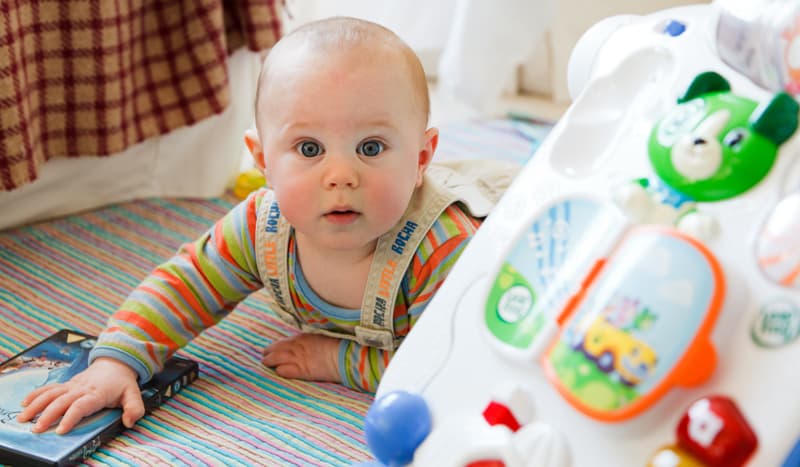Increase In The Outbreak Of Measles

baby
Europe has seen a big surge over the past year in outbreaks of measles reports the World Health Organisation. More than 20,000 people have been affected and 35 deaths have been recorded. But what is measles and why are rates of infection on the rise?
What Is Measles?
Measles is a virus that is highly infectious. It is caused by paramyxovirus. It starts like a cold and symptoms can include a runny or blocked nose, sneezing, a high temperature and a cough. Before the rash appears small greyish white spots can appear in the mouth. The measles rash then appears on the body 2-4 days after the first symptoms. It is highly infectious.
When To Consult Your GP
Contact your GP immediately if you think that either you or your child has measles. Do not turn up in the surgery, call them first, as it can be highly infectious.
Why Have There Been So Many Outbreaks?
Fifteen European countries have seen large outbreaks over the past year including the UK. One of the reasons for the increase may be due to fewer people being vaccinated. The MMR vaccine can prevent measles but when it was associated with autism 20 years ago, in research that has since been discredited, that did affect some peoples view of the vaccine.
Measles Vaccination
The vaccine is given in two doses to very young children although older children and adults can be vaccinated later. The vaccination is part of the MMR jab. MMR protects against measles, mumps and rubella in a single injection. All three conditions are infectious and can be fatal as well as causing meningitis, swelling of the brain and deafness. The MMR vaccine was introduced in 1988. The first injection is given to babies, normally within a month of their first birthday. The second injection is then given usually at age 3. The injection is given into the muscle of the thigh or upper arm.
Does The MMR Vaccine Cause Autism?
The outbreaks of measles are seen by some to be due to the concern some parents have that MMR is linked to autism. So where did this come from?
In 1998 a doctor called Dr Wakefield published research in the Lancet that there was a link between the MMR jab and autism or bowel disease. This research was however completely discredited and he was subsequently struck off as a doctor. Subsequent studies have found no link between MMR and autism or bowel disease.
Single Vaccines
Single vaccines are not available on the NHS because there is concern that not all children would get all the injections. In effect you would have to have 6 separate injections. Some parents do however pay to have these administered privately.
England
Some regions in England have been particularly affected. Regions have included West Yorkshire, Cheshire, Liverpool, West Midlands, Surrey and Greater Manchester. These outbreaks are linked to large outbreaks in Europe. Romania and Italy have suffered particularly large outbreaks recently. But in total 15 countries in Europe have witnessed large outbreaks of measles over the past year.
The World Health Organisation would like 95% of the population to be immunised. At the time of writing 91.6% of the UK population are immunised.
How Does Measles Spread?
Droplets transfer the infection. As such the disease can easily spread from room to room. It is highly infectious.
Measles And Pregnancy
If you are planning a pregnancy do make sure you have received a measles vaccination. You cannot be vaccinated during pregnancy. If you do contract measles in pregnancy this can result in an infection of the unborn child and in the worst case can result in the death of the baby.
You Might Like
Why Have A Credit Card?
Why would you choose to have a credit card? Choosing the right one for you is more important than ever with debt and your credit rating at stake.How To help Your Child Have A Healthy Life
The latest research suggests that by the time children leave primary school 1 in 5 of them are obese. What can we do about this?Drinking Alcohol Can Reduce The Risk Of Diabetes
Recent research from Denmark suggests that drinking alcohol three times a week reduces your chances of developing diabetes. But what does the research really say?What Is Stammering & Can Music Help?
If your childs suffers from stammering what can you do to help them?How Lemons Can Help You Revise
Its that time of year again when revision fever hits. New research suggests that there are ways you can maximise your revision time and they include smelling lemons!
Useful Websites
- Children.org.uk
A national charity founded in 1977 to fund research into the treatment, prevention and cure of childhood diseases - ARIA - The Arable Research Institute Association
Links arable crop farmers to research scientists and the latest information on pests and diseases, particularly in cereals - Beelief Apitherapy Bee Pharmacy
Apitherapy is the medicinal use of honeybee products to help with many illnesses, including eczema, asthma, rheumatism, arthritis, immune diseases, for natural health and healing - Tea Health
The Tea Council's information about healthy drinking and fluid replacement as well as up-to-the-minute data on the role of tea in diseases such as cancer, stroke and heart disease - METRO HEALTH
Source of health information for gay men, bi men, up-to-date information on HIV, AIDS, and sexually transmitted diseases whilst allowing you the means to get in touch and book appointments - Add Your Website Here